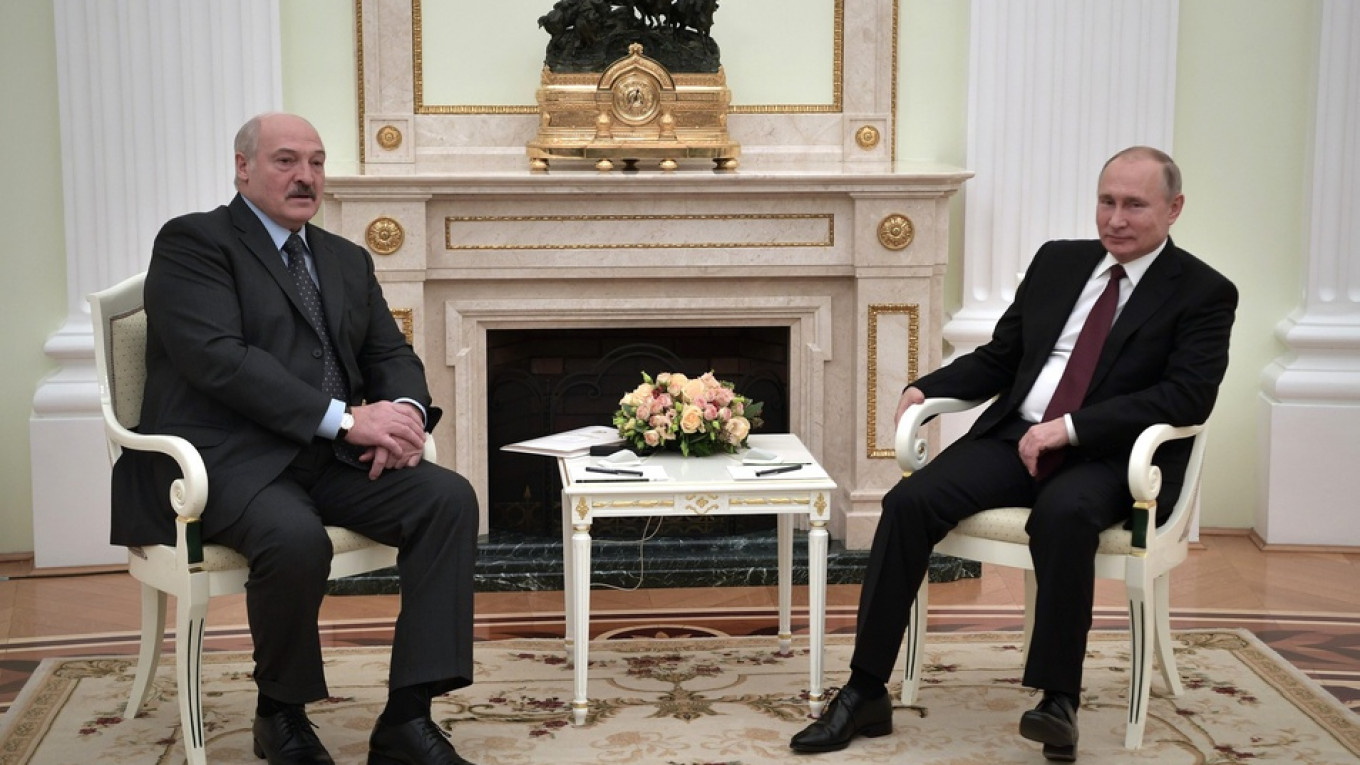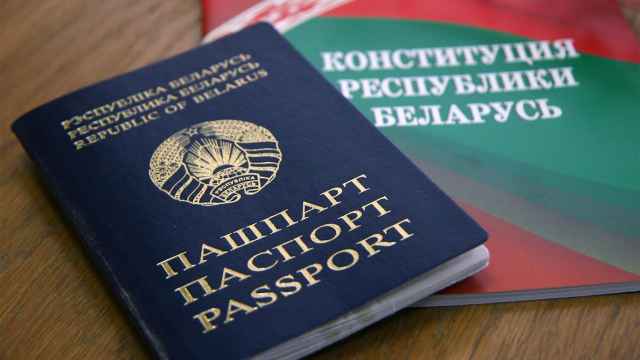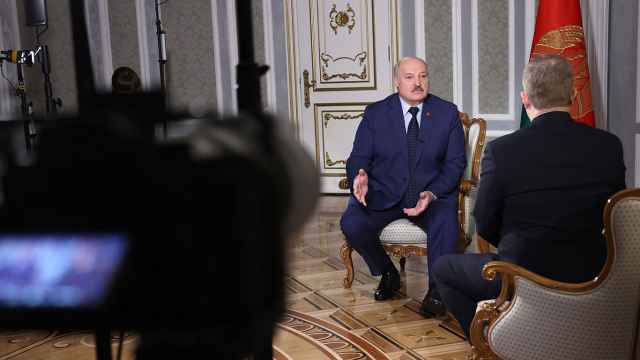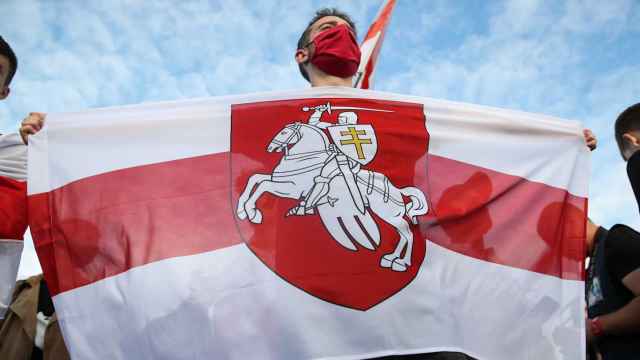President Vladimir Putin has more than five years left in office, but he must already contemplate his next move. The transition among Russia’s leaders is seldom smooth, so Putin is looking at ways to ensure his continued influence by forging a closer union with neighboring Belarus. A change in the Russian oil taxation regime has provided the opportunity for exploring this scenario.
The Russian constitution allows a president to serve only two consecutive terms. In 2008, rather than change the law and be ridiculed as the equal of Central Asian dictators, Putin ceded the presidency to a close ally, Dmitry Medvedev. But he hated playing second fiddle and disliked Medvedev’s openness to more cooperation with the U.S.; besides, trusting anyone with such a handover could be a bigger risk today, in a country increasingly run by the security apparatus. Simply going into retirement in 2024 is an even scarier option: Putin could never be certain of any personal security guarantees his successor might provide.
That makes the Belarus deal especially attractive. Putin’s predecessor, Boris Yeltsin, and the Belarusian dictator Alexander Lukashenko, driven by regrets about the dissolution of economic ties after the Soviet Union’s breakup, signed a framework union treaty in 1997. The 1999 version of the document essentially describes a federation of the two states, with a single currency, flag and emblem, a common market and a unified judiciary. It’s supposed to be run by a Supreme State Council, headed by the presidents of the two countries on a rotating basis “unless they agree otherwise.” Lukashenko has headed the body since 2000, but it doesn’t have much real power because the union treaty was never fully operational. The only element of the union that exists for ordinary people today is a seamless joint labor market.
Russia itself has been lukewarm about a closer union with economically weak Belarus, run by Lukashenko’s thoroughly Soviet team. In particular, extending the Russian monetary system to Belarus, as Lukashenko has at times suggested, could weaken the ruble and undermine Russia’s macroeconomic stability. Russia had enough problems of its own even to consider spreading its rickety economic umbrella over a country of almost 10 million with a purchasing power-adjusted per capita economic output about a third smaller than Russia’s, according to the International Monetary Fund. Lukashenko, for his part, only wanted the economic benefits of a closer union with Russia, such as cheap oil and gas, but not the loss of sovereignty that would come with implementing the union treaty. In a way, it was cheaper for Russia to give him what he wanted than to push for more.
Now, however, unification is politically attractive to Putin, and not just because he could take over a much strengthened Supreme State Council in 2024, retaining a large measure of his power for life without changing the constitution.
Russia is closer than ever to resolving a territorial dispute with Japan that has festered since 1945. Although it would unlock major Japanese investment, the deal would mean handing over some of the disputed Far Eastern islands, a potentially unpopular move that it would be good to balance by territorial gains elsewhere. A peaceful reunification with Belarusians also could be spun as a kind of compensation to Russians for the recent rift with once equally friendly Ukraine.
This is a good moment for Putin to put pressure on Lukashenko without looking overly aggressive. Russia doesn’t have to threaten to cut off gas supplies, raise energy prices or insist on a greater military presence. Belarus stands to lose billions of dollars from a perfectly reasonable tax reform going on in Russia today.
The reform is known as the “tax maneuver”: Starting this year, Russia is gradually phasing out oil export duties, which stand at 30 percent today, and replacing them with a higher mineral extraction tax. The idea is to lower de facto fuel subsidies for the domestic market: All oil, whether exported or sold domestically, will eventually be taxed the same.
That means Belarus, which today buys Russian oil duty-free and exports much of it, charging its own duties, will have to pay more. This year, according to the Belarusian Finance Ministry, the country stands to lose $300 million from the Russian “tax maneuver” given an oil price of about $70 per barrel. That’s already quite a lot for a country with an economic output of about $55 billion, and the losses will mount as the Russian export duties disappear.
Lukashenko has asked Russia to reimburse Belarus for the losses either by lowering the oil price or via a direct budgetary transfer. But in December, multiple Russian government officials, including Prime Minister Medvedev and Finance Minister Anton Siluanov, linked any compensation to a deeper integration with Russia under the 1999 union treaty.
Though Lukashenko has publicly warned Russia against trying to swallow up Belarus and Putin’s spokesman, Dmitry Peskov, has said a Russia-Belarus merger isn’t the subject of discussion, the denials only concern a full takeover, rather than a deeper integration scenario with Belarus and Russia both formally ceding part of their sovereignty to the union state. That scenario — a single currency, a unified judiciary and a harmonized tax system — appears to be on Russian officials’ minds. During two meetings with Lukashenko in late December, however, Putin failed to convince his junior partner to go down the unification path. Most Belarusians, too, believe Belarus should be independent, though a Russian ally.
Lukashenko’s alternative to bending to Putin’s pressure is seeking help in the West, but that, in a way, is a less attractive option for him: He suspects the U.S. and the European Union want to undermine his near-absolute power. As many times before in his career, the Belarusian leader is caught between a rock and a hard place. Whether he can wiggle out this time depends largely on whether Putin finds other ways to resolve his own political problems, both with succession and with the balance of gains and sacrifices in foreign policy. If he doesn’t, the pressure may become unbearable for the Belarusian dictator.
Leonid Bershidsky is Bloomberg Opinion's Europe columnist. He was the founding editor of the Russian business daily Vedomosti and founded the opinion website Slon.ru. The views expressed in opinion pieces do not necessarily reflect the editorial position of The Moscow Times.
A Message from The Moscow Times:
Dear readers,
We are facing unprecedented challenges. Russia's Prosecutor General's Office has designated The Moscow Times as an "undesirable" organization, criminalizing our work and putting our staff at risk of prosecution. This follows our earlier unjust labeling as a "foreign agent."
These actions are direct attempts to silence independent journalism in Russia. The authorities claim our work "discredits the decisions of the Russian leadership." We see things differently: we strive to provide accurate, unbiased reporting on Russia.
We, the journalists of The Moscow Times, refuse to be silenced. But to continue our work, we need your help.
Your support, no matter how small, makes a world of difference. If you can, please support us monthly starting from just $2. It's quick to set up, and every contribution makes a significant impact.
By supporting The Moscow Times, you're defending open, independent journalism in the face of repression. Thank you for standing with us.
Remind me later.








